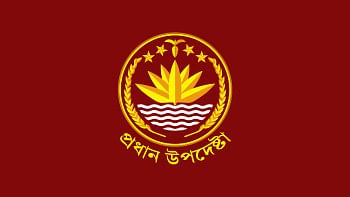Foreign fruits turn costlier for duty hike

Recent supplementary duty (SD) hikes on the import of fruits have dealt a fresh blow to people who were already cutting back on these delicacies since the imposition of regulatory duties in mid-2022.
On January 9, the National Board of Revenue (NBR) increased the supplementary duty on the import of certain dry and fresh fruits, such as nuts and betel nuts, to 45 percent from the previous 30 percent.
The duty on some fresh fruits, such as grapes, apples, and watermelons, as well as on juices, was raised to 30 percent from 20 percent.
This mid-fiscal year move by the government is widely interpreted as an attempt to increase revenue collection and meet conditions set by the International Monetary Fund (IMF) for its ongoing $4.7 billion loan programme for Bangladesh.
Economists and businesses have criticised the timing of the NBR's decision, as people have been struggling with inflation above 9 percent for nearly two years.
Customers report that retailers are now charging Tk 20 to Tk 30 more for each kilogramme (kg) of apples, oranges, grapes, sweet oranges, and watermelons, forcing them to reduce purchases amid persistently high inflation for nearly two years.
Naznin Akhter, a shopper at Karwan Bazar, one of Dhaka's largest kitchen markets, expressed her concern, stating that she could no longer afford foreign fruits in the volumes she used to purchase a year ago.
"Ten days ago, I bought medium-sized oranges at Tk 260 per kg, but the price has now risen to Tk 290. Similarly, apples that were Tk 290 per kg are now Tk 320," she said.
"I had planned to buy 2 kg of oranges and 2 kg of apples. However, due to the price hike, I ended up purchasing only 1.5 kg of each," she added.
Naznin urged the government to reconsider the duty hikes to ease the burden on consumers.
Fruit traders say the previous duty hikes reduced imports by roughly 30 percent, whereas the latest SD hikes have slashed wholesale sales by 20 to 25 percent.
Mohammad Sagar Mia, a shop owner at Karwan Bazar, said prices have risen by Tk 15 to Tk 20 per kg at the retail level.
"In some cases, the price of certain fruits has increased by Tk 25 per kg," he said.
Prior to January 9, he used to buy black grapes for Tk 500 per kg at wholesale, and now it costs Tk 530. Similarly, the price of small-sized pomegranates has risen from Tk 450 to Tk 480.
The price of oranges was Tk 200 to Tk 230 but has now increased to Tk 240 to Tk 260. Apples, which were Tk 280 earlier, are now Tk 300, he added.
Sagar also noted that pears, previously priced at Tk 270 to Tk 280, are now Tk 288.
Serazul Islam, president of the Bangladesh Fresh Fruits Importers Association, told The Daily Star that they sent a letter to the relevant government office a month ago requesting an exemption from regulatory duties and a reduction in advance income tax.
This request was particularly important with Ramadan, the month of fasting, due to begin in March, when believers typically incorporate different fruits into their daily diet, he said.
Islam also claimed that March was a time when the variety of local fruits available in markets was limited, although this could not be independently verified.
However, the opposite occurred, he said.
"With high inflation persisting, people have already been buying less fruit over the past two years," he added.
"The recent tax increases will further force many middle-income and lower-middle-income consumers to cut back on their fruit consumption," he said.
As a result of rising prices, wholesale fruit sales have already dropped by 20 to 25 percent over the past two to three days, Islam said.
Bangladesh's fruit imports, as reflected in the opening of letters of credit (LCs), fell by 8.5 percent year-on-year to $107 million in the July-November period of fiscal year 2024-25.
The settlement of the LCs also declined during the period, according to Bangladesh Bank data.
The Consumers Association of Bangladesh last Sunday urged the government to refrain from implementing the SD hikes until the end of Ramadan, warning that otherwise, it would worsen the financial struggles of low- and middle-income families.


 For all latest news, follow The Daily Star's Google News channel.
For all latest news, follow The Daily Star's Google News channel. 



Comments